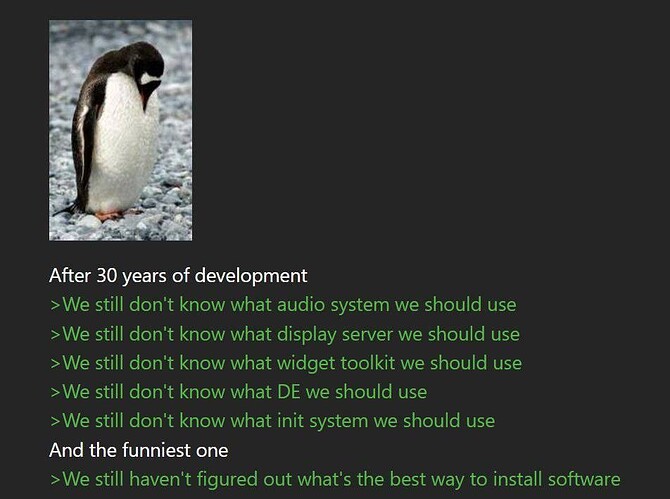I was interested in BeOS when it was PPC and bought a copy for x86 when it became available and stuck with it until the end. I even had it installed on my computer at work, needing mostly spreadsheets, web, and email. It worked nicely for all of those.
I watched the early days of the different BeOS replacements but lost the thread for a few years until Haiku started to get usable for me. So, somewhere around Beta 2, I think. Once Beta 3 dropped, I’ve had at least once computer that always had it and updated when different Betas were released. Now I have a Beta 5 computer, and one with nightlies.
To answer the question why, it’s because I like it. I liked using BeOS and I like using Haiku and would prefer to use it all the time. Because… I just do.
I use Windows, even though I don’t like it. My job is based around it (and always has been) and it plays games. I have considered ditching Windows and getting an XBox for games, but, I feel I’ll always need Windows for job related things, at least.
I also use macOS, which I’m fine with. I don’t find it at all limiting like other people do (because I know how to install programs that aren’t signed, if I need to). It’s reliable, for the most part. There are things that irk me, but that’s the nature of life.
I also have one computer that runs Linux, but I don’t use that as often because it just doesn’t thrill me and there’s not much that I can do with it that I can’t already do with Windows and macOS.
Which leaves me in a weird position. There’s nothing I can do on Haiku that I can’t already do with Windows and macOS, either. Especially since Haiku gets ports of programs that also run on those two. I just would really like to use Haiku, instead.
So, I wish there were less ports of Qt and GTK programs and more effort into creating Haiku “native” things. Like, a word processor. Something that used the strengths of the OS and UI. This probably seems convulated and makes a lot more sense in my head.
![]()
